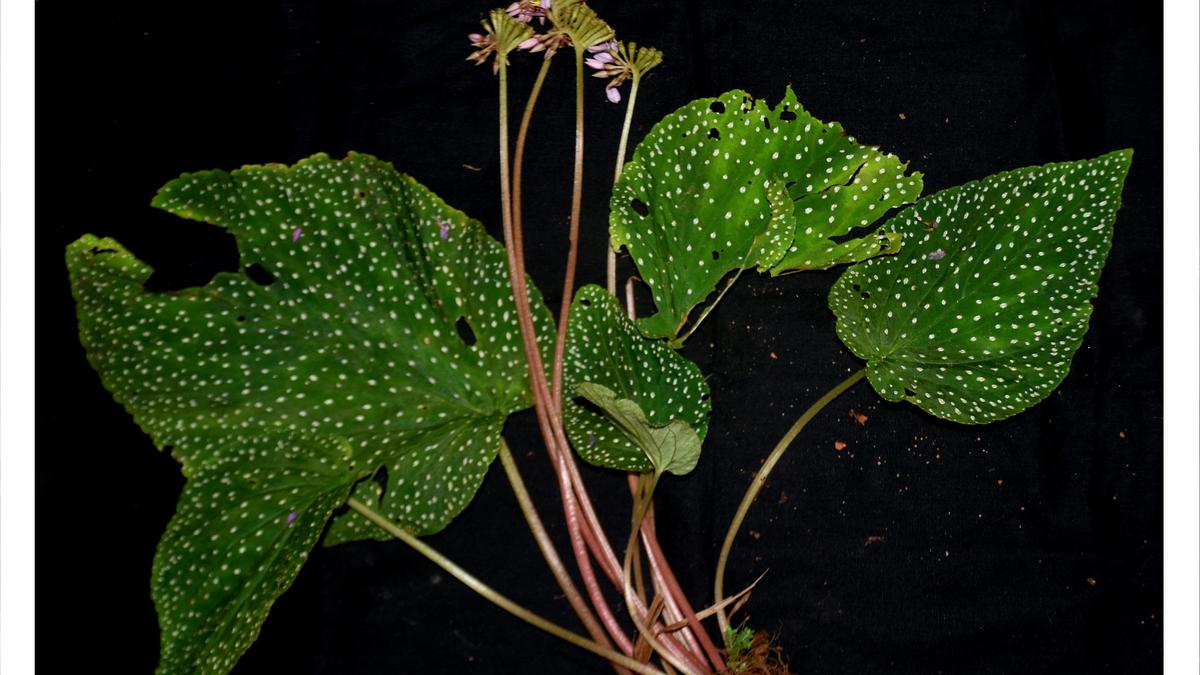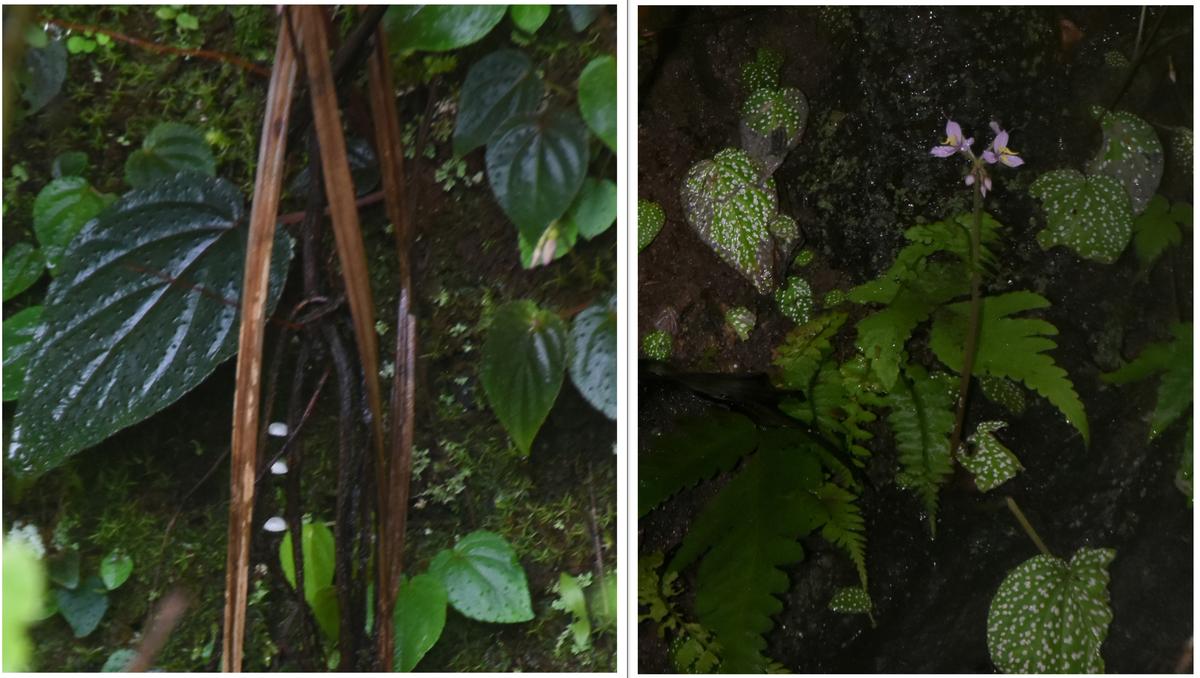A team of botanists from Davangere University has made an extraordinary contribution to India’s botanical records by discovering three new species of plants and reporting another for the first time in Karnataka. The breakthrough, achieved after years of extensive fieldwork in the Western Ghats and semi-arid regions, has been hailed as a moment of pride for the state’s scientific community. The newly identified species belong to genera that are crucial indicators of biodiversity health and environmental balance, underscoring the ecological richness still waiting to be documented across Karnataka’s diverse landscapes.
Following the announcement, the Karnataka State Biodiversity Board has expressed its intention to felicitate the Davangere research team during its upcoming biodiversity conclave. Officials noted that such field discoveries are vital for policy framing, as they help identify ecologically sensitive areas requiring stronger legal protection. The Board has also proposed a collaboration with universities to map lesser-known ecosystems using AI-assisted analysis. This approach, combining technology with traditional field expertise, could help the government prioritize conservation funding and anticipate regions at risk of ecological degradation before irreversible losses occur.
In recognition of their contribution, the Ministry of Environment, Forest and Climate Change has reportedly sought detailed data from the researchers for inclusion in national biodiversity registers. Scientists emphasized that recognition at the national level is crucial for securing grants that sustain long-term research and conservation efforts. The Ministry’s involvement is also expected to strengthen Karnataka’s bid for UNESCO’s proposed “Biodiversity Heritage Site” tag for certain forest tracts. Such recognition would not only ensure stronger protection but also promote eco-tourism rooted in education and sustainability rather than exploitation.
Meanwhile, several universities across South India have reached out to Davangere University to explore collaborative research on plant ecology and genetics. Scholars believe that the discovery marks the beginning of a new chapter in inter-institutional cooperation aimed at documenting the hidden flora of the Deccan region. Plans are already underway to organize a joint symposium where young botanists can present their field observations, share methodologies, and discuss the ethical dimensions of species collection. The initiative is expected to nurture an academic culture of curiosity-driven exploration across multiple ecological zones.
As Karnataka’s forests continue to reveal their secrets, the discoveries remind policymakers, scientists, and citizens alike of the delicate interdependence between humans and nature. Each species found becomes a mirror reflecting both environmental richness and human responsibility. The Davangere botanists’ work stands as a tribute to perseverance and scientific rigor — a legacy that will inspire future generations of researchers. For now, these tiny green miracles continue to thrive silently in their natural habitats, embodying the timeless truth that nature, when respected, always gives more than it takes.
Meticulous Exploration and the Joy of Discovery
Led by Dr. S. Manjunath and his research associates, the team embarked on field expeditions spanning over two years, focusing on less-explored forest zones and hilly terrains. Their careful documentation, specimen collection, and morphological analysis revealed three previously unidentified plant species, each exhibiting unique adaptations to microclimates and soil variations. The discovery process combined traditional taxonomy with modern genetic sequencing to confirm the novelty of the species. According to the researchers, this blend of classical botany and contemporary molecular tools represents a model for future ecological research in the state.
Each of the new plant species has been tentatively named in honor of regional habitats and local conservation heroes who have dedicated their lives to environmental protection. This symbolic gesture, the botanists say, reflects not just scientific achievement but also gratitude toward the communities safeguarding Karnataka’s green heritage. The plants were found thriving in ecologically sensitive pockets of the Western Ghats — a region globally recognized as a biodiversity hotspot. Their presence reaffirms the need to conserve these fragile habitats that harbor species found nowhere else on Earth.
The fourth plant reported is not a new species but has been recorded in Karnataka for the first time, significantly expanding its known distribution range in India. Earlier, it was believed to grow only in the Eastern Ghats and parts of Maharashtra. This new finding suggests that Karnataka’s microclimatic variations and elevation patterns could provide conducive environments for several rare species that may have gone unnoticed due to limited exploration. The research team emphasized that such discoveries often reshape scientific understanding of species migration and regional ecosystem diversity.

Ecological Significance and Conservation Implications
Experts note that each new discovery carries immense ecological significance, especially at a time when habitat loss, deforestation, and urbanization threaten biodiversity. The plants discovered by the Davangere team include a flowering shrub, a medicinal herb, and a climbing vine — all critical to their ecosystems. These species contribute to pollination networks, serve as microhabitats for insects, and maintain the food web stability essential to forest health. The findings have drawn attention from conservation authorities, who are now considering the designation of specific protection zones for these newly identified habitats.
The team has also submitted detailed herbarium specimens to national repositories, ensuring that future researchers can study them for potential pharmacological and ecological applications. Preliminary analysis suggests that one of the newly discovered herbs contains bioactive compounds with anti-inflammatory properties, opening potential avenues for medicinal research. The Department of Science and Technology is reportedly considering additional funding to support further exploration in adjacent regions, acknowledging the critical link between biodiversity documentation and sustainable development.
Dr. Manjunath emphasized that fieldwork in remote areas remains both challenging and rewarding. Harsh weather, limited accessibility, and the need for local collaboration often test researchers’ perseverance. However, such challenges also build lasting partnerships between scientists, forest officials, and indigenous communities. In several areas, local villagers guided the researchers to hidden forest patches where the plants were later found. This collaboration highlights the vital role of traditional ecological knowledge in guiding modern science toward new discoveries.
Beyond the scientific triumph, the discovery also draws attention to Karnataka’s environmental policy priorities. Experts argue that recognizing and documenting new species is only the first step; the greater challenge lies in ensuring their protection. Unregulated development, mining, and agricultural expansion in forest fringes continue to threaten delicate ecosystems. Environmentalists are urging the state government to integrate such discoveries into updated biodiversity management plans, aligning conservation goals with sustainable livelihoods for local residents.

The research team’s findings will soon be published in an international peer-reviewed journal specializing in plant taxonomy. The peer review process, currently underway, involves global experts who verify the morphological distinctions and molecular data supporting the classification. Once officially accepted, these species will enter global botanical databases, cementing Karnataka’s growing reputation as a center for biodiversity research. This global acknowledgment, the scientists believe, will inspire more young researchers to pursue field botany and conservation science in India’s western and southern regions.
Public Awareness and the Road Ahead
Educational institutions across Karnataka are already planning exhibitions and awareness programs based on the discovery. Davangere University has announced its intention to organize a “Green Discoveries Week,” where students, teachers, and environmental activists can learn about the importance of field-based research and the value of plant diversity. The initiative aims to cultivate curiosity about the natural world and emphasize that conservation begins with awareness. By showcasing the newly discovered species through photographs and preserved specimens, the university hopes to inspire a new generation of environmental stewards.
The discovery also comes at a time when the state’s biodiversity boards are intensifying their documentation drives under the National Biodiversity Mission. Officials stated that identifying new species enhances Karnataka’s biological index, which plays a vital role in assessing ecosystem health and guiding conservation investments. With each addition to the flora list, the region’s ecological importance becomes more evident, reinforcing the argument for stricter protection against deforestation and habitat fragmentation.
Local communities living near the discovery sites have expressed pride in their surroundings, often referring to the new plants as “treasures of the hills.” Many see this as recognition of their efforts in protecting forest areas from encroachment and overexploitation. Community-based conservation initiatives are now being considered, wherein local residents could serve as custodians of these rare species under government-supported eco-tourism or educational projects. Such partnerships may create sustainable income opportunities while ensuring the long-term protection of natural resources.
Environmental experts also point out that these discoveries hold lessons beyond science — they remind society of nature’s resilience and the urgency of preservation. The plants’ survival in isolated ecosystems, despite changing climates and human interference, demonstrates the intricate balance of life that thrives in unnoticed corners. Scientists believe that documenting such species can help track environmental shifts, serving as natural indicators for studying climate change impacts on regional flora and fauna.
For students and young researchers, the success of the Davangere botanists serves as an inspiring example of what persistence and curiosity can achieve. Universities across Karnataka are being encouraged to introduce specialized fieldwork programs and collaborate with forest departments for hands-on research. The integration of modern techniques like drone mapping, satellite imaging, and DNA barcoding is expected to accelerate species discovery, making Karnataka a leader in biodiversity studies within India.
The newly discovered plants, though small in size, carry immense symbolic weight — they represent the unexplored beauty of Karnataka’s environment and the collective effort of those striving to protect it. Scientists hope that the enthusiasm surrounding these discoveries will extend into concrete policy changes that prioritize habitat conservation and ecological research funding. As Karnataka continues to expand its urban and industrial footprint, the findings serve as a timely reminder that progress and preservation must coexist in balance.
In a concluding statement, Dr. Manjunath reflected that every new species discovered is not merely an addition to scientific records but a testament to nature’s enduring creativity. He expressed gratitude to his team, the university, and the forest department for their unwavering support throughout the project. “Each plant tells a story of adaptation and survival,” he said. “Our responsibility is to ensure that these stories continue for generations to come.”
The discovery stands as a symbol of hope — a reminder that even amid deforestation and climate challenges, nature still reveals its secrets to those who seek them with patience and respect. For Karnataka, it marks another proud milestone in its journey toward environmental stewardship, scientific innovation, and the preservation of its green heritage.
Follow: Karnataka Government
Also read: Home | Channel 6 Network – Latest News, Breaking Updates: Politics, Business, Tech & More

